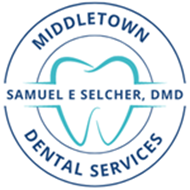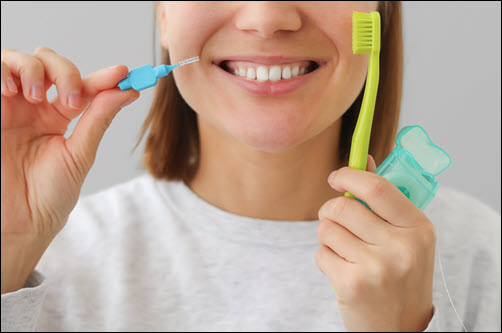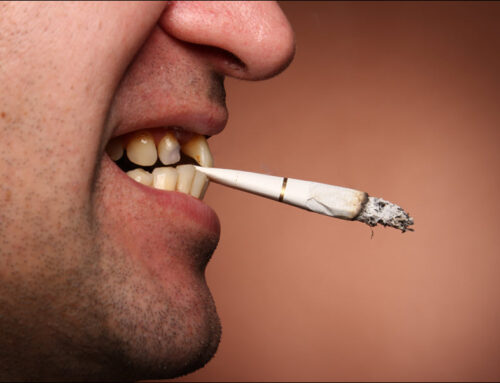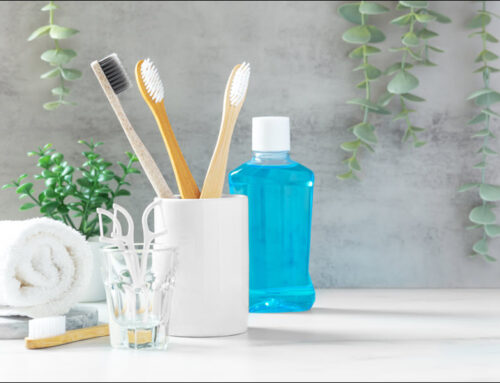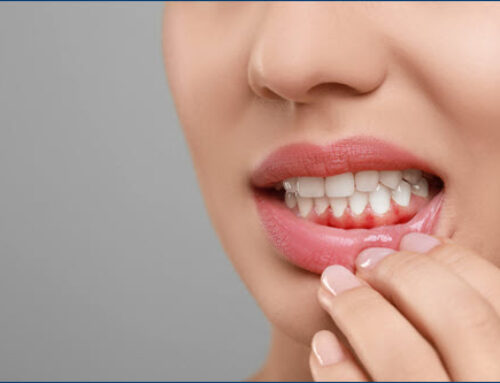Preventive home care dentistry, focusing on brushing, flossing, and rinsing, plays a pivotal role in enhancing oral hygiene and reducing the risk of cavities. These simple yet effective practices are the cornerstone of dental health maintenance.
Brushing: The primary defense against dental issues is regular brushing. It’s recommended to brush at least twice a day, using a fluoride toothpaste. Fluoride strengthens tooth enamel, making it more resistant to decay. Use a soft-bristled toothbrush to gently clean all surfaces of your teeth, including the front, back, and chewing surfaces. Spend at least two minutes each session, ensuring that all plaque and food particles are removed. Don’t forget to brush your tongue as well, as it can harbor bacteria.
 Flossing: Flossing daily is crucial for removing plaque and food particles that your toothbrush can’t reach, especially between teeth and under the gumline. Gently guide the floss between your teeth using a back-and-forth motion. Curve it around each tooth, sliding it beneath the gumline, but avoid snapping the floss into the gums. Flossing helps prevent gum disease and cavities in areas your brush can’t reach.
Flossing: Flossing daily is crucial for removing plaque and food particles that your toothbrush can’t reach, especially between teeth and under the gumline. Gently guide the floss between your teeth using a back-and-forth motion. Curve it around each tooth, sliding it beneath the gumline, but avoid snapping the floss into the gums. Flossing helps prevent gum disease and cavities in areas your brush can’t reach.
Rinsing: Use an antimicrobial or fluoride mouthwash to rinse your mouth after brushing and flossing. This helps kill bacteria, freshen breath, and provide an extra layer of fluoride protection, which is especially beneficial for those prone to cavities. Swish the mouthwash around for 30 seconds to a minute, then spit it out.
Consistency and Technique: The key to effective preventive home care is consistency and proper technique. Brush and floss at the same times each day to establish a routine. Be gentle to avoid gum damage and ensure that you’re cleaning effectively.
Regular Dental Check-ups: In addition to home care, regular dental check-ups and cleanings are essential. A dentist can identify and treat problems early, provide professional cleanings to remove tartar, and offer personalized advice for your oral care routine.
Diet and Lifestyle Choices: Lastly, a balanced diet low in sugary and acidic foods helps prevent tooth decay. Drinking plenty of water, especially after meals, can help wash away food particles and bacteria.
In summary, maintaining good oral hygiene through regular brushing, flossing, and rinsing is vital for preventing cavities and ensuring overall dental health. Combined with professional dental care and healthy lifestyle choices, these practices form the foundation of effective preventive dentistry. Be sure to schedule a dental exam and professional cleaning every six months for optimal dental care. We’re happy to be your dentist at Middletown Dental Services.
